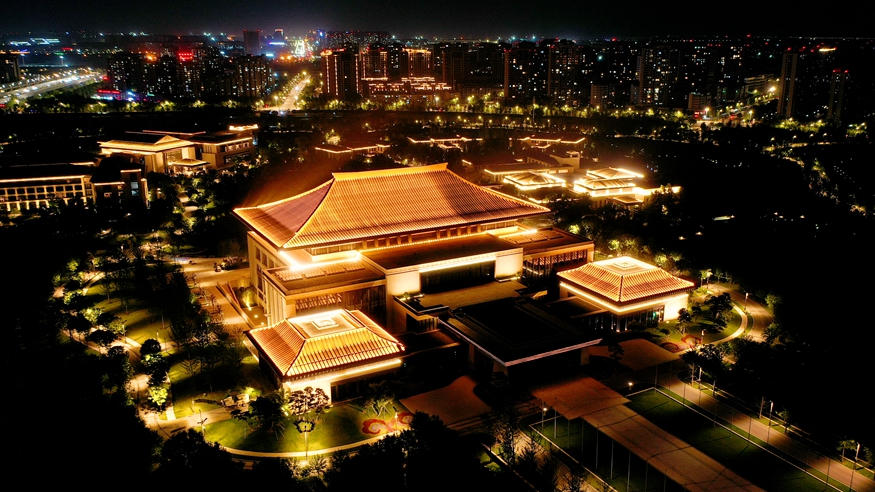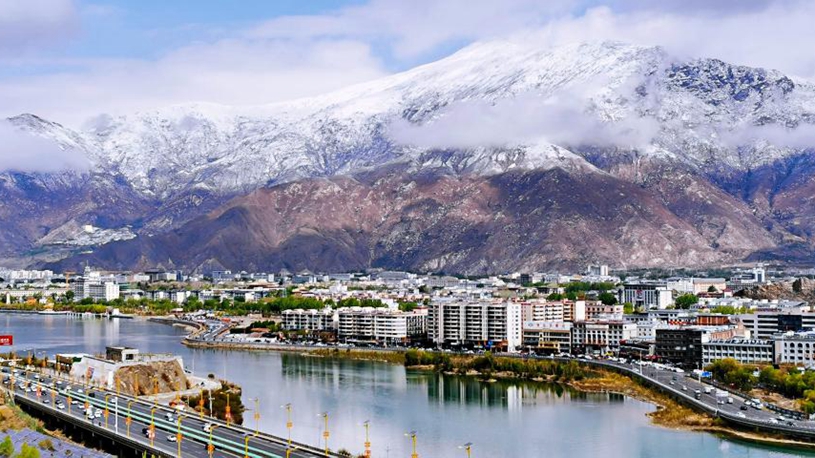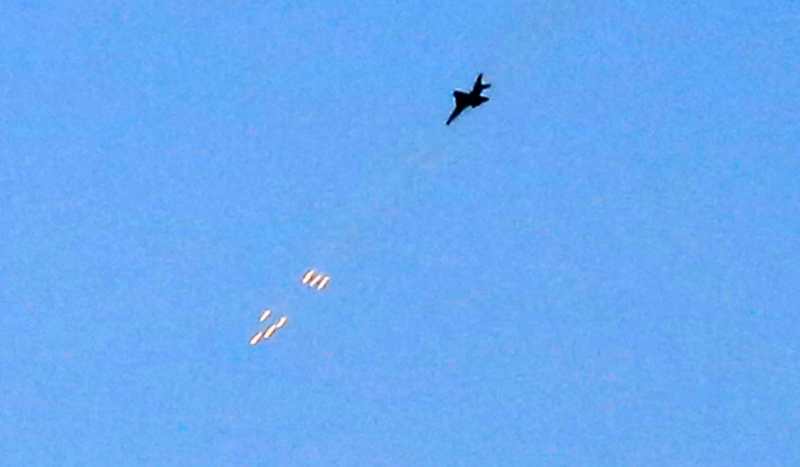
A Sudanese army warplane is seen attacking the posts of paramilitary Rapid Support Forces in Bahri in north of Khartoum, Sudan, on May 11, 2023. (Photo by Mohamed Khidir/Xinhua)
Sudanese residents in the capital of Khartoum are facing a worsening humanitarian crisis due to lack of power and food supplies amid the ongoing armed clashes which have entered the second month.
KHARTOUM, May 16 (Xinhua) -- The already dire humanitarian crisis in Sudan's capital of Khartoum is worsening as the armed clashes between the Sudanese Army and the Rapid Support Forces (RSF) entered the second month.
Residents in the conflict zones are facing acute shortages of basic services, food, electricity, and water supply, while the situation has been exacerbated by air bombardments and looting of major local markets.
This has disrupted the supply of daily necessities, sent the prices of food commodities to skyrocket, and raised fears about an inflation surge that could push millions of Sudanese to the edge of starvation.
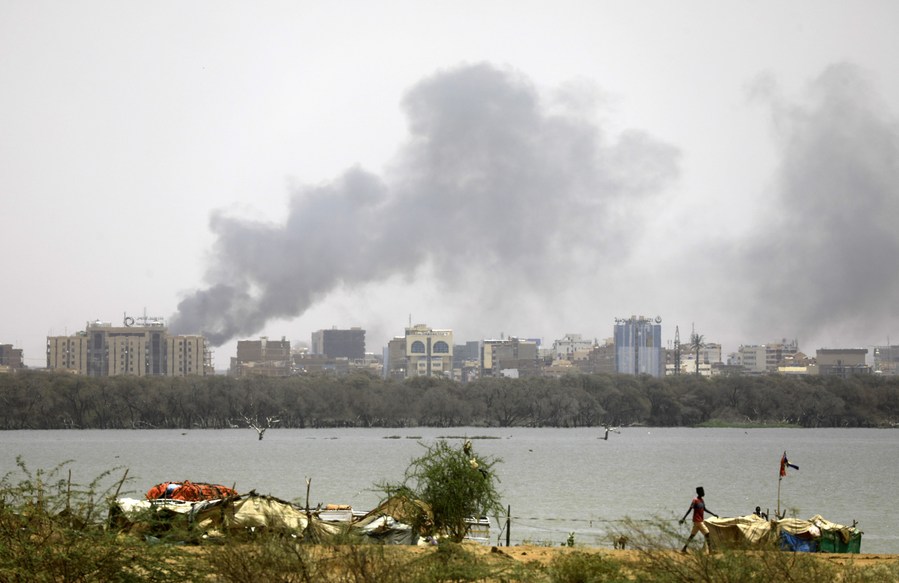
The photo taken on April 15, 2023 shows black smoke billowing into sky as result of the armed clashes in Khartoum, Sudan. (Photo by Mohamed Khidir/Xinhua)
Mohamed Noureddine Hashim, a Sudanese economist, told Xinhua that "major food commodity factories and import companies of the country are in Khartoum, but most of those factories have now been vandalized to closure."
He warned the number of citizens in need of urgent aid will likely increase "as millions of employees are currently unable to work because of the war."
"Prices have increased dramatically for staple goods and there are shortages of imported goods such as wheat flour, oil, and tomato paste," said the United Nations Office for the Coordination of Humanitarian Affairs, citing a report by the Mercy Corps.
"In some areas, shops have closed because of insecurity or lack of goods. Access to cash remains a significant issue in Khartoum and South Darfur, while the increase in fuel prices and transportation costs has hindered both daily life and the ability of people to move out of insecure areas," the report said.
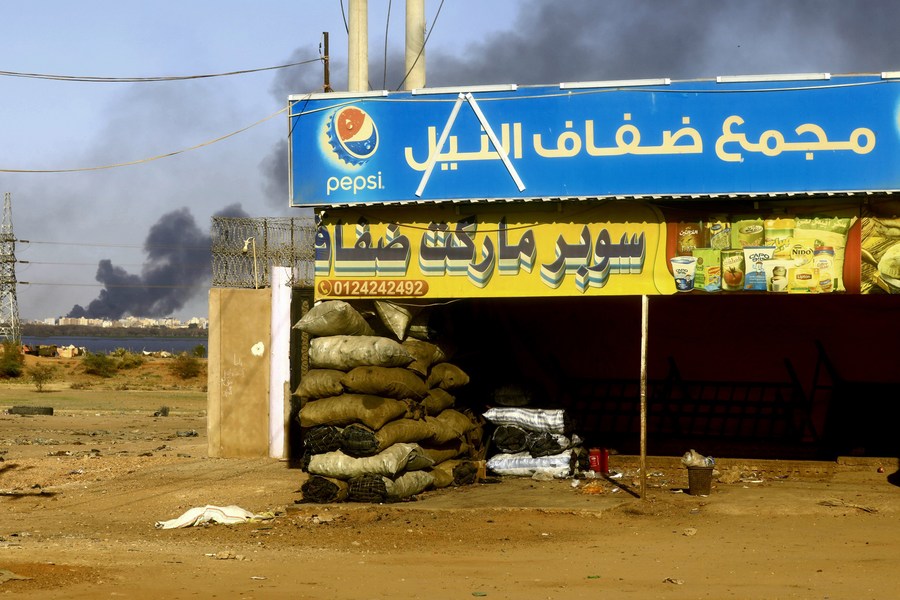
The photo taken on April 19, 2023 shows a closed shop in Khartoum, Sudan amid the ongoing clashes. (Photo by Mohamed Khidir/Xinhua)
Residents of Khartoum are suffering from frequent power outages for long hours due to the suspension of purchasing electricity through bank applications or direct sales windows, according to the National Electricity Corporation.
"There is no electricity in the northern Al-Shabiya area (a neighborhood north of Khartoum)," Tariq Hanafi, a resident of the Al-Shabiya neighborhood, told Xinhua on Tuesday.
Hanafi said that some residents had to resort to other alternatives, such as generators, but failed to operate them due to a lack of fuel. The power outages also disrupted the water supply.
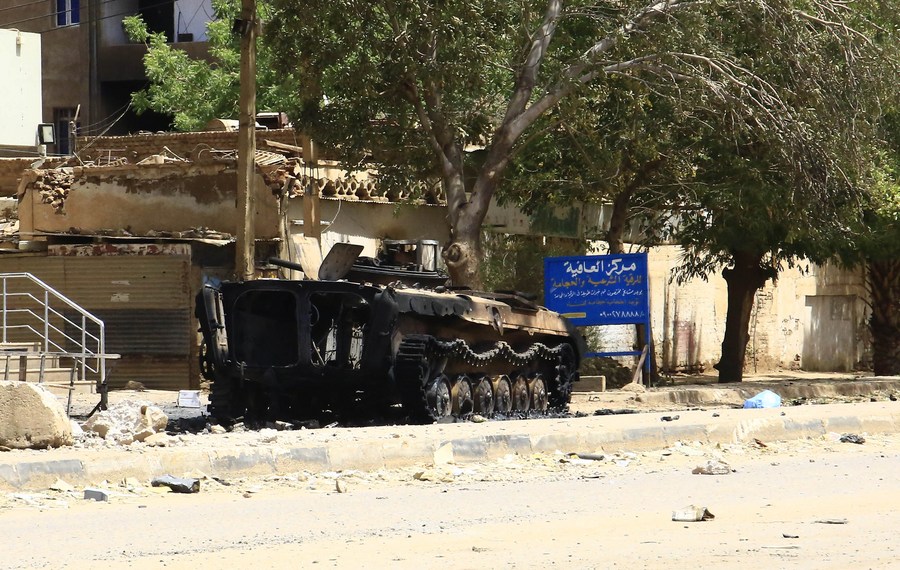
The photo taken on April 18, 2023 shows an armored military vehicle of the Sudanese army damaged in Bahri, north of the Sudanese capital Khartoum. (Xinhua/ Mohamed Khidir)
In addition, the disruption of the education system is causing deep concerns in the country, as observers said it could leave the future of thousands of students uncertain.
Salah Abdel-Ghaffar, a Sudanese academician and educational supervisor, said on Tuesday that over 500,000 students were scheduled to take the Sudanese certificate exams next June, but now their fate is uncertain.
"If the crisis prolongs, the academic year will be blown in the air," said Abdel-Ghaffar, who also expressed concerns about the "psychological effects of war on children."
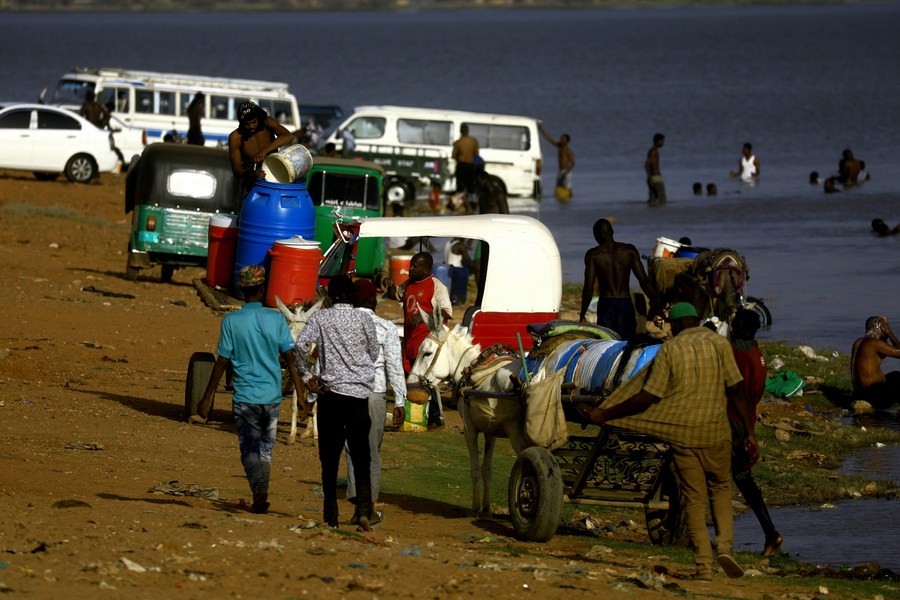
The photo taken on April 17, 2023 shows Sudanese citizens resorting to the Nile to get water after the water and electricity supplies were cut off in their neighborhoods due to the ongoing clashes. (Xinhua/ Mohamed Khidir)
Eyewitnesses reported direct clashes on Tuesday between units of the Sudanese Army and RSF fighters in the Jabra area in the south of Khartoum, as well as Arkaweet, Al-Mamoura and El-Jeraif in the east of the capital.
The Sudanese Doctors Union said on Tuesday in a statement that the civilian death toll has climbed to 822 since the clashes broke out on April 15. ■

